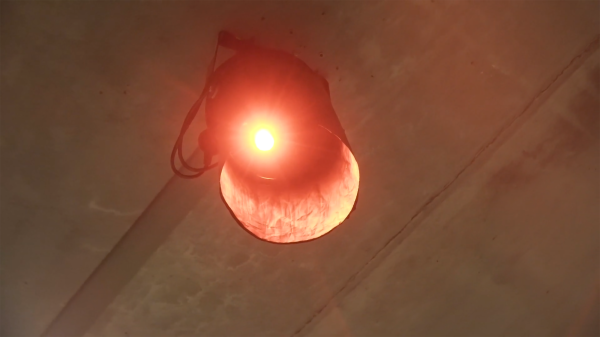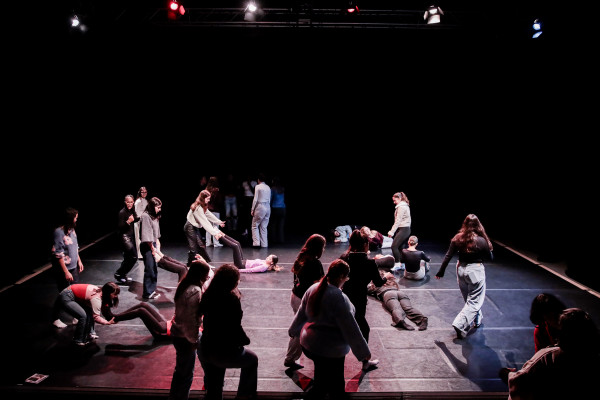“Total Eclipse” (2019) marks a new stage in Diana Policarpo’s ongoing research into the avant-garde composer Johanna M. Beyer (1888-1944), whose life and work (unfinished and ignored) is the inspiration for the creation of new works. The project is part of a body of work that Policarpo has been developing which critically addresses issues of power in contemporary culture, of which sound is a fundamental material, mainly through the creation of sound installations and performances. The starting point is the seminal work of Beyer, a pioneer of electronic music and experimental composition from New York in the mid-twentieth century, whose work was neglected and therefore consigned to invisibility. Her profile as a woman and an immigrant (Beyer is an American composer born in Germany) is a factor of discrimination, according to Diana Policarpo.

“The existing score and typescript are almost non-existent, both a work not to be seen and politically neglected. Literally obscured in plain sight, to the point that composer Henry Cowell’s recommendation to the Guggenheim Fellowship on Beyer’s behalf ends with the endorsement of one man, not Beyer. The story is so blatant. The strange confusion that we can only read in their relationship reverberates from the archive, with her obsessed and him almost hateful.”
“Total Eclipse” is also a sound installation inspired by ‘Status Quo’ (1938), a performance of Music of the Spheres, for the unrealized political opera by German-American composer Johanna M. Beyer. It is thus a composition and an art history that broke with art - which is what the term avant-garde wants to describe, and still can’t, because Beyer was a woman.
“Beyer - a woman, composer and immigrant is an impossible subject for a story,” says Diana Policarpo, BoCA’s resident artist for the 2019-2020 biennium.



